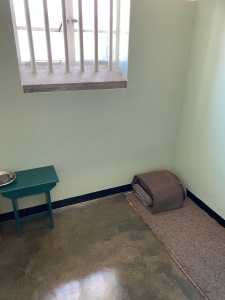(This item first appeared on 2nd November in my ‘Brighton and Beyond’ column in the Brighton Argus)
This coming Saturday is Bonfire Night, the day we remember the foiled plot of 5th November 1605 to blow up Parliament and King James I.
The person most associated with the plot, Guy Fawkes, was not, in fact, the leader of the plot, rather a humble servant who happened to be found beneath Parliament with barrels of gunpowder.
Robert Catesby, a Roman Catholic, was leader of the conspirators who hoped to restore a Catholic monarchy to England after a long period of persecution of Catholics. Catesby died of a gunshot wound when resisting capture, while many of his fellow conspirators were rounded up and brought to The Tower of London where they confessed, usually under torture.

Robert and Thomas Wintour / Winter
Amongst the conspirators were Catesby’s cousins, Robert and Thomas Wintour, sometimes written as ‘Winter’, and the signature on Thomas’s confession was written with this spelling. Antonia Fraser, in her book, The Gunpowder Plot, said that the signature differs from his normal signature, ‘Wintour’, and suggested that the confession was a forgery. There is no doubt, however, that Thomas was central to the conspiracy and involved from the outset.
At their trial, Thomas tried to protect his brother, saying that he regretted having involved Robert to the plot. He asked that he be hanged on his brother’s behalf as well as his own, but that was not to be.
At his execution, according to Fraser, Thomas was “a very pale and dead colour” and, while he absolved the Jesuits from any part of the Plot, said that this was “no time to discourse” and that he had “come to die”. He was hanged for only a few moments and, while still conscious, he was taken to the block for the remainder of the sentence – the dismembering of his body while still conscious.
Guy Fawkes died when his neck was broken as he was hanged, thus sparing him the agony of being ‘quartered’.
As a keen genealogist, I have spent many years trying to establish a link between Robert and Thomas and my family but, alas, without success. Some of the surviving members of the family, like many Catholic families, experienced an increase in persecution following the plot and fled England for Ireland where they remained. My Winter ancestors, all Catholics, moved from Ireland to Liverpool in the nineteenth century.
I hope that one day I might be able to establish a family link to Robert and Thomas. It is said that the plotters were amongst the few who “entered Parliament with honourable intentions”. This may be a controversial view. How can anyone planning what can reasonably be described as an act of terrorism be described as having honourable intentions?
The Plotters and their Catholic community had been subjected to harsh repression by James, and their maternal uncle, Francis Ingleby, a Catholic priest, had been executed in York in 1586, a fact which, Antonia Fraser said, “could hardly have failed to leave a stark impression upon the Wintour family.”
Terrorist or freedom fighter, let’s not forget that the greatest freedom fighter of them all, Nelson Mandela, led a bombing campaign aimed at overthrowing a regime which was itself violent and anti-democratic. Mandela was, allegedly, described by Margaret Thatcher as a “grubby little terrorist’. History has judged him differently.
Excluding the war, it wasn’t until 1979 that another bomb was planted within the Palace of Westminster. On that occasion it killed its intended target, the Conservative MP, Airey Neave.
By pure coincidence, I was there at the very moment that the bomb detonated. I had only recently arrived in the U.K. from South Africa. I was travelling from Brighton to Stoke-on-Trent but was too early for my train so I decided to walk from Victoria Station. I lost my bearings and did not know which way I was walking. After about 20 minutes I found myself outside the Palace of Westminster for the first time. As I was looking up at the iconic tower that houses Big Ben, I heard an almighty explosion. Soon there were police officers everywhere and we were all moved back to the other side of Parliament Square.
It struck me as ironic that having lived in a state of emergency in South Africa, I had never heard a shot fired in anger, nor witnessed an explosion. Yet six weeks after arriving in the U.K., I was no more than 100m away from the highest profile political assassination of that time.
I’ve never liked Bonfire Night. It might be something to do with Thomas and Robert Winter. I am also uneasy about bigoted elements of some of the Lewes Bonfire Societies. I don’t like anything that goes ‘bang’, and animals really suffer on the night.
Others love Bonfire Night, so enjoy it, look after your pets, and please keep yourself safe.
 A year ago today, I visited Robben Island for the second time. We were taken by coach around the island with a tour guide who had been a political prisoner for eight years from 1977. He was in parts funny, moving and inspiring although with a touch of bitterness as his five-year contract as a guide had been terminated from the end of the following week.
A year ago today, I visited Robben Island for the second time. We were taken by coach around the island with a tour guide who had been a political prisoner for eight years from 1977. He was in parts funny, moving and inspiring although with a touch of bitterness as his five-year contract as a guide had been terminated from the end of the following week.















